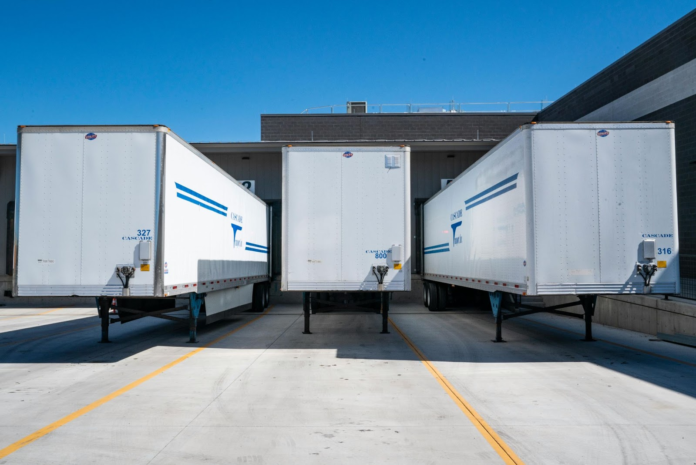
Efficient distribution is critical in the Fast-Moving Consumer Goods (FMCG)industry. Success depends on ensuring that products reach consumers quickly and accurately. FMCG companies can overcome distribution challenges by using a well-designed distributor management system Technology is used to streamline operations, reduce costs, and foster better relationships with distributors in these solutions. Let’s explore how these systems are affecting the FMCG industry.
Distribution has always been the cornerstone of FMCG’s success. Traditional methods often cannot deal with the growing complexity of modern markets. FMCG companies are pressured to optimize their supply chains due to fragmented demand patterns, seasonal fluctuations, and stiff competition. This is where DMS (distributor management system) can help.
The tools provided by these solutions enable companies to quickly adapt to market shifts by tracking inventory, demand forecasting, and performance analytics. By putting in place distributor management solutions, businesses can eliminate distribution inefficiencies.
Key Challenges in FMCG Distribution
Logistics is not the only aspect of efficient distribution. If not addressed proactively, numerous challenges can disrupt the supply chain FMCG companies face.
Market Fragmentation
Markets are increasingly fragmented, and diverse consumer preferences create complexity in demand planning. In most cases, distributors serving multiple regions struggle to maintain proper inventory levels across locations. Without a centralized view, companies risk overstocking in low-demand areas or understocking where demand is high.
Distributor management systems assist companies in collecting and analyzing regional data to make informed decisions. This enhances the alignment of supply and demand, reduces waste, and enhances service levels.
Seasonal Demand Variations
Seasonal demand changes add another layer of complexity. For instance, summer ice cream and beverage sales surge, while festive seasons often see spikes in other product categories. Without accurate forecasting, companies risk losing sales or facing excess inventory costs.
A DMS enables real-time analytics and predictive modeling to anticipate demand variations. Businesses can adjust production schedules and distribution plans, ensuring smooth operations during peak seasons.
Shelf Space Competition
Retail shelf space is limited, and competition for prime placement is intense. Distributors must negotiate strategically to secure visibility for their products. Poor execution can result in lost sales opportunities and diminished brand presence.
With a distributor management solution, FMCG companies can monitor shelf performance and track compliance with merchandising agreements. These insights empower distributors to optimize placement strategies, ensuring better returns on investment.
How Distributor Management Solutions Address These Challenges
Distributor management systems provide the tools and capabilities to confront these challenges. Here’s how they make a difference.
Enhanced Inventory Management
Inventory mismanagement is a costly problem in the FMCG industry. Overstocking ties up capital, while stockouts lead to missed sales. A DMS distributor management system offers real-time visibility into inventory levels, enabling businesses to maintain optimal stock across all locations.
With automated alerts and demand forecasting, companies can avoid disruptions and ensure that products are always available where needed.
Improved Order Fulfillment and Tracking
Late or inaccurate deliveries can damage customer relationships and erode brand trust. Distributor management systems simplify order processing, ensuring timely and accurate deliveries. GPS-enabled tracking also provides real-time updates, offering transparency to both businesses and customers.
These capabilities enhance efficiency and boost customer satisfaction, creating a competitive edge in the marketplace.
Data-Driven Decision Making
In today’s data-driven world, relying solely on intuition is insufficient. A distributor management solution collects and analyzes data from various touchpoints, offering actionable insights into sales trends, distributor performance, and market demand.
With this information, companies can make smarter decisions, from optimizing delivery routes to identifying new growth opportunities.

Benefits of Implementing Distributor Management Solutions
The impact of distributor management solutions extends beyond solving immediate challenges. Here are some of the key benefits businesses can expect:
- Operational Efficiency: By automating routine tasks, companies free up resources to focus on strategic priorities. Processes like order processing, inventory updates, and performance tracking become seamless.
- Cost Reduction: Better inventory and order management minimize wastage and reduce overheads, directly contributing to higher profitability.
- Stronger Distributor Relationships: Transparency and improved communication strengthen trust and collaboration between FMCG companies and their distributors.
Conclusion
Distributor management solutions are undeniably a game-changer for the FMCG industry. By addressing challenges like market fragmentation, seasonal demand variations, and shelf space competition, these systems empower companies to streamline operations, cut costs, and improve distributor relationships. A DMS distributor management system is necessary for businesses looking to stay competitive.
FMCG companies need to adopt a distributor management solution to stay agile, responsive, and prepared for the future, especially in a world where consumer demands evolve rapidly. Now is the moment to take advantage of these tools and unleash the full potential of your business.





